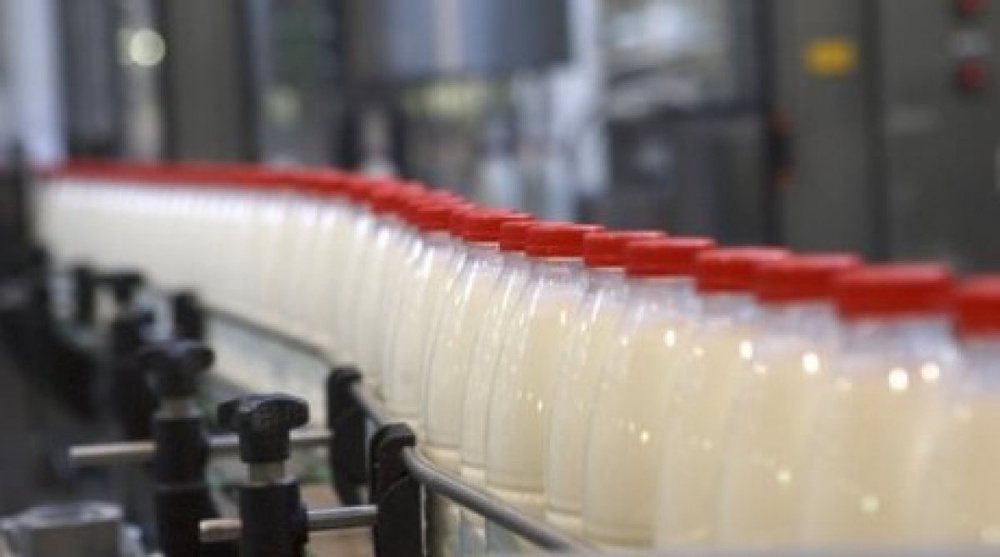
Increasing import duties would not save Kazakhstan milk producers, chairman of Kazakhstan National Consumers League Svetlana Romanovskaya told Tengrinews.kz. In February 2013 the Council of Eurasian Economic Commission (EEC) made a decision to increase import duties on some types of dairy products from 15 to 18.3 percent. In particular, the decision is related to such dairy products as butter, dairy spread and farmer cheese. The Council’s decision comes in effect within 30 days since its official publishing. The EEC Council also decided to increase the import duty on grate cheese and powdered cheese of all types, including Schabziger cheese from 15 to 20 percent and on Feta cow-milk cheese to 25 percent. But the Chairman of the Kazakhstan Consumers League is sure that increasing the duties on imported dairy products would have a negative effect on the consumers, but would not save the local producers. She does not preclude that the Kazakhstan market would benefit to some extent from the increase in the duties, but the main problem lays in the attitude of Kazakhstan businessmen to their companies, she believes. “I am confident that people will still buy imported cheeses even if they become more expensive. They will buy them because of their quality. Our products are not competitive because they are expensive. Businessmen in other countries think about their businesses every day; they develop they, work hard to lower the self-cost, improve qualification of their employees and implement new technologies. Whereas our business is relaxed, I would say, it is pretty childish,” Romanovskaya said. According to her, Kazakhstan businessmen have not learn to compete for the market or win it. Executive Director of the Milk Union Lidiya Mikheyeva has a different opinion. She supports the decision to increase the import duties on dairy products. According to her, Kazakhstan needs to protect local market and sell its goods. She believes that problems of local producers are related to high cost of raw milk. The high costs results from expensive winter fodder (a major part of dairy cattle is concentrated in cold northern regions of the country). She also pointed out the problem of low cattle productivity: in Europe one cow gives 2-3 times more milk than in Kazakhstan. She believes that this problem exists because Kazakhstan has no tradition of using technologies in this industry. “The self-cost of Kazakhstan products is higher than the cost of imported finished goods. If everything remains the same, there is a risk (for our producers) to loose the market,” Mikheyeva said. Kazakhstan requires time to solve the problems of its milk industry and introduction of import duties can give it the time.





Increasing import duties would not save Kazakhstan milk producers, chairman of Kazakhstan National Consumers League Svetlana Romanovskaya told Tengrinews.kz.
In February 2013 the Council of Eurasian Economic Commission (EEC) made a decision to increase import duties on some types of dairy products from 15 to 18.3 percent. In particular, the decision is related to such dairy products as butter, dairy spread and farmer cheese. The Council’s decision comes in effect within 30 days since its official publishing. The EEC Council also decided to increase the import duty on grate cheese and powdered cheese of all types, including Schabziger cheese from 15 to 20 percent and on Feta cow-milk cheese to 25 percent.
But the Chairman of the Kazakhstan Consumers League is sure that increasing the duties on imported dairy products would have a negative effect on the consumers, but would not save the local producers. She does not preclude that the Kazakhstan market would benefit to some extent from the increase in the duties, but the main problem lays in the attitude of Kazakhstan businessmen to their companies, she believes.
“I am confident that people will still buy imported cheeses even if they become more expensive. They will buy them because of their quality. Our products are not competitive because they are expensive. Businessmen in other countries think about their businesses every day; they develop they, work hard to lower the self-cost, improve qualification of their employees and implement new technologies. Whereas our business is relaxed, I would say, it is pretty childish,” Romanovskaya said. According to her, Kazakhstan businessmen have not learn to compete for the market or win it.
Executive Director of the Milk Union Lidiya Mikheyeva has a different opinion. She supports the decision to increase the import duties on dairy products. According to her, Kazakhstan needs to protect local market and sell its goods.
She believes that problems of local producers are related to high cost of raw milk. The high costs results from expensive winter fodder (a major part of dairy cattle is concentrated in cold northern regions of the country). She also pointed out the problem of low cattle productivity: in Europe one cow gives 2-3 times more milk than in Kazakhstan. She believes that this problem exists because Kazakhstan has no tradition of using technologies in this industry.
“The self-cost of Kazakhstan products is higher than the cost of imported finished goods. If everything remains the same, there is a risk (for our producers) to loose the market,” Mikheyeva said.
Kazakhstan requires time to solve the problems of its milk industry and introduction of import duties can give it the time.


 +7 (777) 001 44 99
+7 (777) 001 44 99















































